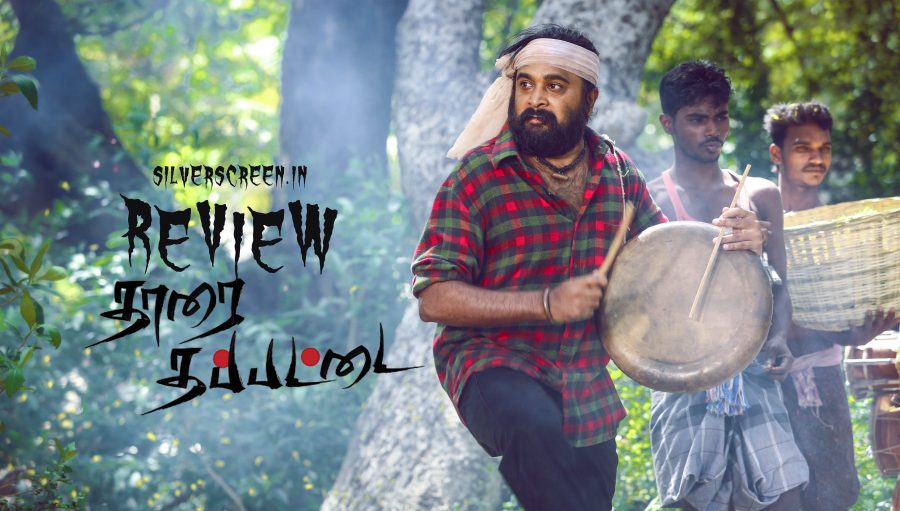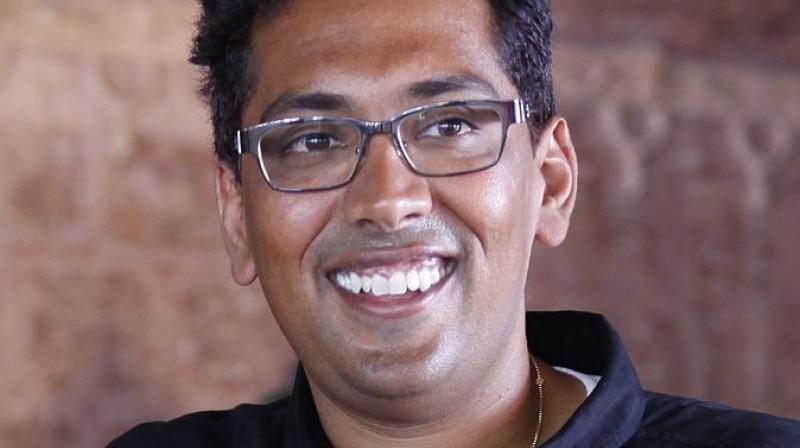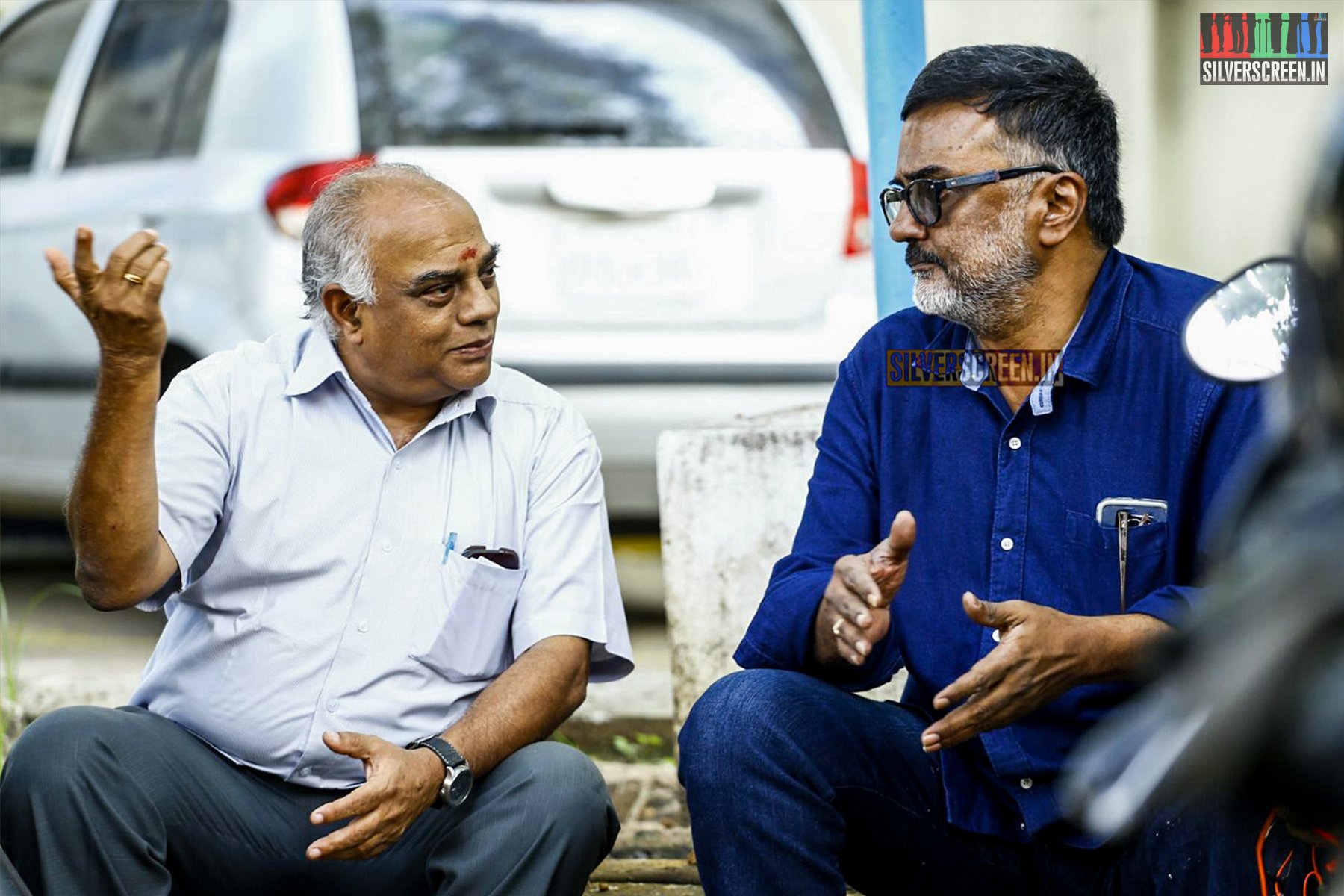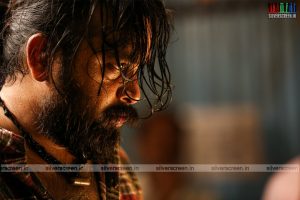
Thaarai Thappattai, director Bala’s latest, is about how a troupe of folk musicians and performers – Sannasi, Suravali, Atom Bomb, and others, live and die in a small village in Tamil Nadu. There’s an acidic, disillusioned artiste; a son wanting approval, or at least acknowledgement from his father; a woman asking for love, and a bottle of alcohol, among others. The film stars Sasikumar as Sannasi, and Varalaxmi Sarathkumar as Suravali. RK Suresh plays Karuppiah, the villain of the piece, and a man whose moral compass must have rusted away decades ago.
When a friend asked me how the film was, I replied “Usual Bala. People Die”.
What is it about a film written and directed by Bala that has everybody around the protagonist/lead dying in succession? I wondered what trauma the director suffered at a younger age, what firm impression was left on him, to have written and directed some of the darkest, most intense films in recent years.
Thaarai Thappattai is intense.
Intense when it is all song and dance. Intense when it is all blood and gore. Intense in its violence and misogyny. Intense even when you think you have figured out the plot of the film and a possible ending by the time it goes into intermission.
*****

Song and dance, then. Thaarai Thappattai is Ilayaraja’s 1000th film as the music composer. Given that the film features a community of folk musicians struggling to find relevance in the age of streaming radio, there was always going to be a lot of music. And what music! The energy in each performance; the mellow beauty of the score in the scenes where the hero showers on the heroine tender loving care. How much the thavil and the violin and the nadaswaram and the cymbals beat and pulse when the hero transforms. The film is billed as a musical in some reviews and announcements, and it is a musical. But not in any generic sense that Tamil cinema understands musicals to be – a cut away, a pause in the proceedings, a transporting of the cast and audience while important feelings are being felt via song. Here, the music is under the surface, under the skin, slowly bubbling along, waiting to burst out and get all your attention. And then, when a song – ‘Idarinum’, for instance – packs all the emotion a struggling musician feels into a song…oh man!
*****
All right then, to blood and gore. This is a Bala film, after all.
Recommended
Some people are going to go through a lot of torture and pain and ultimately die. Or wish they would. There’s going to be realistic blood on screen (from stepping onto a nail to having a surgical cleaver plunged into human flesh). And other icky bits where you can do nothing but cringe and shrink into yourself. But you cannot stop watching.
There will be violence. Verbal violence, like when someone says they can split open a pregnant woman’s stomach like a jackfruit and remove the flesh. Visual violence, like when a group of women are lashed with whips, and their scalps tonsured. Or when the hero, transformed and angry, pounds and pulverizes the henchmen. Like some of Bala’s previous films, the women first appear to be feisty and independent. Spirited. Then life in the Bala Universe happens. Bad things become worse, and the women are either shut down by the men, or killed by them. Ultimately, the only one to survive is the hero. The man. All but dead inside.
*****
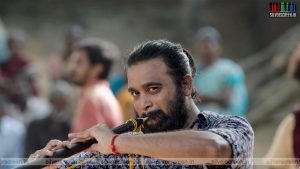
Maybe I was reading too much into the film, or maybe it was there, an undercurrent. It seemed as if Bala, and the characters of Thaarai Thappattai, wanted to talk about caste dynamics and why they have to live the lives they do. For instance, when a visibly upper-caste person engages Sami Pulavar to perform at a party for white people, he is alarmed as Sami Pulavar begins drinking, and “fouling up” the atmosphere. This plays out in most of their engagements with the people who commission their performances. Clearly Sannasi and his band are supplicants, lower down the ladder than everyone they encounter.
Even the place where Sannasi and Suravali and their people live seems to be cut off from the rest of the world, the only neighbours they have are themselves. Their only interaction with others is as showpieces, putting on a performance to entertain.
*****
The same cannot be said about the film, which feels heavy and intense. It’s engrossing, but doesn’t exactly entertain. It’s hard to say what exactly it does besides, much like all other Bala films, stun one into silence for the two plus hours it plays on screen.
*****
The Thaarai Thappattai review is a Silverscreen original article. It was not paid for or commissioned by anyone associated with the movie. Silverscreen.in and its writers do not have any commercial relationship with movies that are reviewed on the site.
